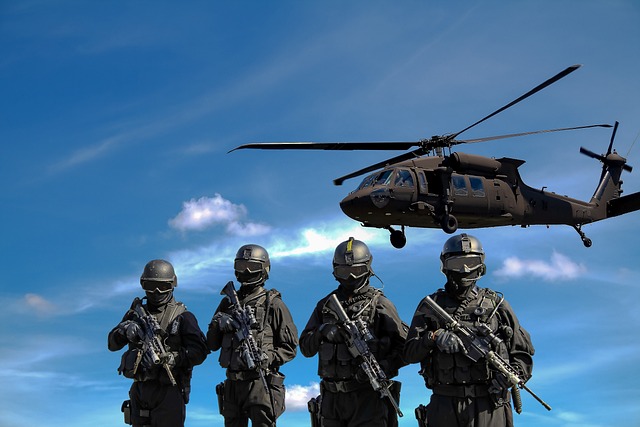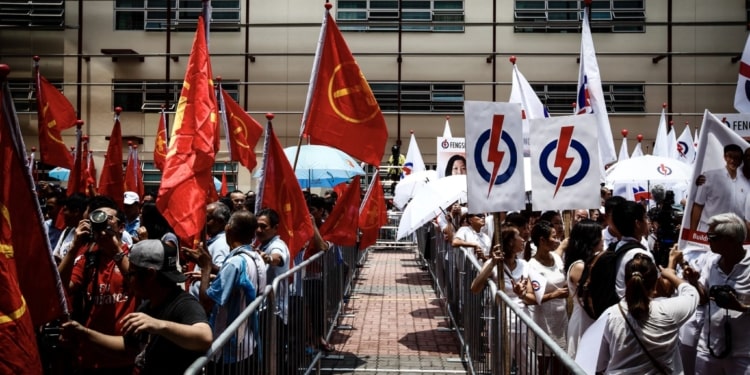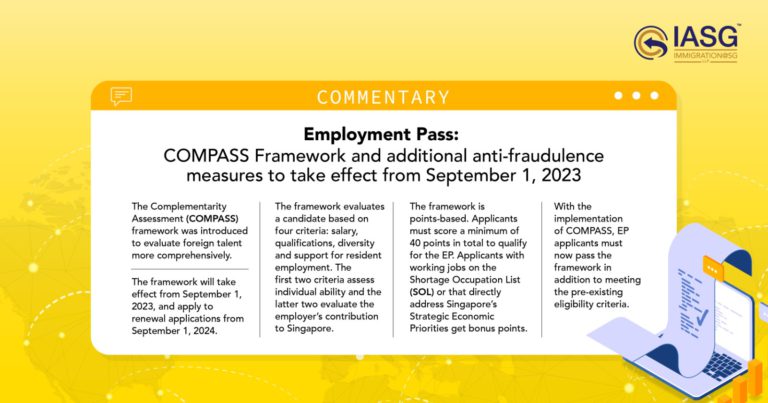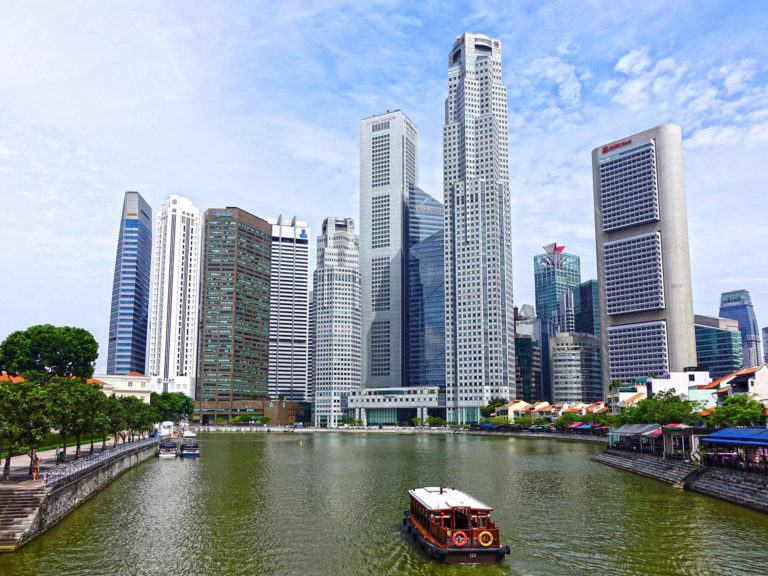Singapore, a vibrant city-state in Southeast Asia, is not immune to the ripple effects of global issues. The interconnected nature of our world means that events occurring thousands of miles away can have profound consequences on Singapore’s socio-economic landscape, especially since Singapore has an open economy and heavily relies on global trade. 2023 has been quite eventful and ended with several pressing global issues. Singapore has been on her toes managing the multifaceted impacts.
-
Resurging COVID-19 Cases
The ongoing global battle against the COVID-19 pandemic continues to shape Singapore’s response. Despite the city-state’s commendable efforts in managing the crisis, the resurgence of around 5000 cases daily poses challenges. Singapore’s economy, heavily reliant on international trade and tourism, is sensitive to global issues and uncertainties. Supply chain disruptions, travel restrictions, and shifts in consumer behaviour have implications for Singapore’s economic recovery.
At its peak, the pandemic has disrupted multiple industries such as aviation & aerospace, tourism & hospitality, and retail & food services. Failure to manage this resurging of COVID-19 cases might cause another disruption in the economy, especially in these industries. A ripple effect of job losses, business closures, and economic downturn will result.
The government is urging the public to wear masks again as more treatment facilities outside of the healthcare institutions are being opened to accommodate the rising cases.
-
Bed Bugs
It started in Paris but has now spread to London, Seoul, Hong Kong, and even Singapore. The global spread of bed bugs may seem like a minor issue, but it has implications for Singapore’s hospitality and tourism sectors. With an emphasis on cleanliness and reputation, Singapore faces challenges in maintaining its status as a global hub for business and leisure.
With the COVID-19 resurgence causing hospital bed shortage, medical attention for bed bugs might strain the healthcare industry even further. Not only is there a concern about housing patients in the various healthcare institutions but there is also an ongoing shortage of medical professionals to attend to the patients.
-
Russian-Ukraine War
The conflict between Russia and Ukraine has global repercussions, impacting geopolitical stability and trade dynamics. While Singapore’s direct trade exposure to Russia is minimal, Singapore is affected by disruptions in the supply chain, fluctuations in energy prices, and potential shifts in global political alliances.
This war has been one of the main reasons for the current inflation affecting the world right now. Prices of commodities such as grains and oil have increased tremendously as Russia is the biggest grain exporter in the world and accounts for more than 10% of global crude oil and natural gas production.
As a small country that relies on global trade, Singapore has to be prepared and adapt accordingly.
-
Israel-Hamas and Israel-Lebanon Conflicts
The ongoing conflicts in the Middle East have indirect consequences on Singapore. As a nation heavily dependent on energy imports, any disruption in the Middle East affects global oil prices, impacting Singapore’s energy-dependent industries and cost of living.
Moreover, with a 15% resident Malay population who are largely muslims, these conflicts have stirred negative emotions in society. This does not include the number of muslims who are foreigners working in Singapore such as Malaysians and migrant workers from Bangladesh. This has forced the government to take a firm stance of not getting involved in the ongoing crisis and remain neutral.
Due to the highly sensitive nature of the crisis, Singapore has implemented tough policies such as a chargeable offence to anyone who wears items that support the Palestinian cause in public. Public demonstrations are also banned to avoid further complications to the society as a whole.
Learning from its past, Singapore takes a serious stance on internal conflicts and has taken great measures to ensure it does not happen again. Internal conflicts such as racial riots would not only destabilise the society and increase the crime rate, but also destabilise the power of the government and crash the economy. As a small nation consisting of multiple races and religions, Singapore has always emphasised on the importance of tolerance and harmony.
-
Yemen’s Blockage on Israeli Ships
Yemen’s blockade on Israeli ships adds another layer of complexity. Singapore, being a major sea port, faces challenges in ensuring smooth maritime trade routes. Disruptions could have cascading effects on the global shipping industry and, consequently, on Singapore’s economic activities.
Two of the biggest shipping companies have paused their Red Sea routes and are expecting to incur higher costs due to the delays and seizure of their ships by the Yemeni Houthis. This increase in costs is to be expected to trickle to consumers globally, thus further increasing the inflation that has been festering since the pandemic in recent years.
-
Global Boycott Movement against Israeli-Linked Businesses
Since October 7th 2023, many businesses, especially big corporations, have shown their support for Israel and denounces Hamas as a terrorist that attacked the Jewish nation. There has been an outpouring of public support from these businesses and also public figures such as Hollywood celebrities, world leaders, and religious groups. Donations in the form of food, beauty products, and monetary aid have been sent to Israel as well. These efforts have been criticised by global citizens due to the hypocrisy of the West in its humanitarian support for select nations and the nature of aggression of Israel towards the Palestinians for more than 75 years.
The global movement to boycott Israeli-linked businesses puts Singapore, with its significant international trade ties, in a delicate position. Big corporations like Mcdonald’s, Starbucks, Unilever, Nestle, LVMH, and many more are experiencing this boycott, all of which are available in Singapore. While Singapore is a small market for these big corporations and an even smaller percentage of Singapore residents are supporting this boycott, the economic impact is not as damaging as other countries. Countries like Morocco have managed to bankrupt Starbucks and H&M and have forced these companies to exit the market.
While these Israeli-linked boycotts have been going on for many years, this is the first time that global citizens are calling out for a total cancellation of these companies. Consumers are now more aware of where their products and services are from and brands’ affiliations. This results in consumers turning towards smaller, local businesses. The success of this movement might cause these big corporations to exit the markets where they are experiencing losses, causing FDIs in the country to fall, hitting the economy.
Therefore, balancing economic interests with diplomatic considerations becomes crucial, as Singapore navigates a complex web of relationships.
Impact of Recent Global Issues on Singapore’s Immigration
Singapore’s resilience in the face of these global issues lies in its adaptability and proactive approach. The city-state must continually assess and respond to the evolving global landscape to safeguard its economic interests, maintain diplomatic relationships, and ensure the well-being of its citizens. As the world grapples with these complex issues, Singapore remains a testament to the interconnectedness of nations and the importance of strategic foresight in navigating the turbulent waters of global affairs.
Attracting & Retaining Top Talent in Select Industries
The pandemic has previously caused retrenchments and job losses for both locals and foreigners in multiple sectors and increased rental pricing for housing, forcing expats to leave the country once they were allowed to travel. Business closures became regular news as well, especially in retail and F&B, leaving many workers in these industries unemployed.
Sector Focus
The pandemic has also affected the tourism and hospitality sector, causing businesses to experience losses and instead receive COVID-19 patients or people who had to be isolated due to being in contact with the patients. Hospitality workers and people working in the aviation industry had to be retrenched as well.
Medical professionals were hailed as heroes, risking their own lives and physical capacity while attending to and treating patients. However, medical workers are in short supply throughout the world. There is still a high demand for medical workers in Singapore.
These pandemic-affected industries have seen a return to almost normalcy in terms of business operations and re-employment.
Business Losses
The wars and geopolitical conflicts have affected both businesses and consumers in terms of rising costs and profitability. In the long-term, businesses might experience an even greater loss and reduce their investments globally, thus reducing job opportunities and production.
Impact on Singapore’s Inbound Immigration
These global issues have created a lot of chaos around the world, changing the lives of millions. While Singapore still needs top talent with specialised skills to manoeuvre towards the future economy, it has to maintain the presence of international corporations within its shores. The risk, especially in the current global situation, is even higher now than ever.
The best way for foreign residents who are working and living in Singapore is to secure a Singapore PR. Benefits include flexibility in jobs and freedom of career options as compared to a Work Pass where it is tied to the job. This will allow foreigners to remain in the country while initiating the next course of action in case of job losses.







